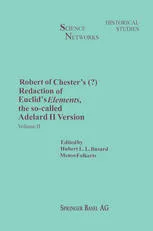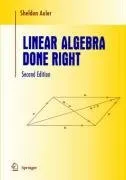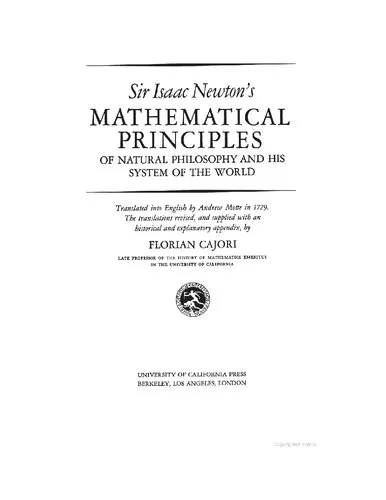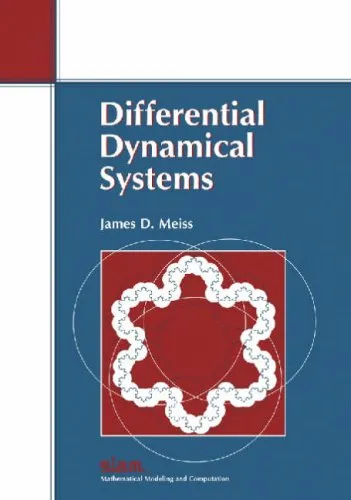Adaptive Control: Stability, Convergence, and Robustness (Prentice-Hall Advanced Reference Series)
4.5
Reviews from our users

You Can Ask your questions from this book's AI after Login
Each download or ask from book AI costs 2 points. To earn more free points, please visit the Points Guide Page and complete some valuable actions.Related Refrences:
Introduction to "Adaptive Control: Stability, Convergence, and Robustness"
"Adaptive Control: Stability, Convergence, and Robustness," written by Shankar Sastry and Marc Bodson, is a foundational text for understanding one of the most important areas of control systems engineering. Published as part of the Prentice-Hall Advanced Reference Series, this book is a hallmark in adaptive control theory, blending rigorous mathematical formulations with practical engineering insights. It provides a comprehensive and structured approach to adaptive control, focusing on stability, convergence, and robustness—three critical aspects that determine the reliability and success of control systems in a constantly changing environment.
The book caters to both experienced professionals and newcomers in the field, making it indispensable for researchers, graduate students, engineers, and practitioners working in fields such as robotics, aerospace, manufacturing, and automation. With a balance of theoretical clarity and applied relevance, the book offers a deep dive into adaptive control systems while emphasizing the mathematical underpinnings that ensure their robustness and reliability.
Detailed Summary of the Book
"Adaptive Control: Stability, Convergence, and Robustness" provides a solid grounding in adaptive control—a technique widely used to manage dynamic systems under uncertainty or disturbances. The focus of the book is on achieving stability in adaptive systems while ensuring that convergence properties are met and robustness to modeling inaccuracies is maintained. Starting with the fundamentals, the authors explain the motivations behind adaptive control and its critical applications in real-world scenarios. The book then progresses through topics such as parameter estimation, model-reference adaptive control (MRAC), self-tuning regulators (STRs), and direct versus indirect adaptive control strategies.
Two defining themes permeate the text: the requirement for stability and robustness within adaptive systems and the use of Lyapunov-based methods for analysis. The authors leverage advanced tools and techniques, including parameter projection, normalization, and robust modifications, to augment the standard methods of adaptive control. The book also delves into practical implementation issues and bridges the gap between theory and application by walking readers through real-world problem-solving scenarios.
With emphasis on both continuous-time and discrete-time adaptive systems, the authors explore practical computational considerations, ensuring the designs remain robust under limitations such as noise, time delays, and unmodeled dynamics. By the end of the book, readers gain a clear understanding of how to design and analyze systems that adapt to changing environments in a stable, consistent manner.
Key Takeaways
- Thorough understanding of stability, convergence, and robustness in adaptive control systems.
- Introduction to the fundamental principles of Lyapunov stability for adaptive systems.
- Insight into the mathematical tools needed for parameter estimation and error modeling.
- In-depth exploration of model-reference adaptive control (MRAC) and self-tuning designs (STRs).
- Practical insights into the implementation of adaptive control in various real-world settings.
- Critical engineering solutions for overcoming noise, disturbances, and unmodeled dynamics.
Famous Quotes from the Book
"The ability of a control system to adapt in the face of uncertainty is not merely desirable—it is essential for systems operating in dynamic and changing conditions."
"Stability is a prerequisite for any meaningful adaptive control. Without it, the system risks divergence, making adaptation futile."
"Lyapunov's theory serves as both a guiding principle and a verification tool in adaptive control design."
Why This Book Matters
Adaptive control is a critical discipline in modern engineering, particularly for systems that operate in environments with high levels of uncertainty or change. From autonomous vehicles adapting to different terrains to industrial robots adjusting to variances in manufacturing processes, the theory and methodologies outlined in this book underpin many of today's most innovative systems.
What sets this book apart is its rigorous and systematic approach to the most challenging aspects of adaptive control: achieving stability and robustness while ensuring that systems converge to desired behavior. By focusing on these three cornerstones, Shankar Sastry and Marc Bodson have created a resource that has stood the test of time as a reference text. The book serves as a bridge between abstract theoretical concepts and tangible engineering solutions, offering a framework that engineers can implement in real-world systems.
Furthermore, the book's clarity in presenting complex mathematical ideas makes it suitable for both self-study and as a course textbook. It empowers readers to tackle real-world challenges, design adaptive controllers, and ensure high performance under adverse conditions. In an engineering landscape where reliability and flexibility are ever more critical, "Adaptive Control: Stability, Convergence, and Robustness" remains indispensable.
Free Direct Download
You Can Download this book after Login
Accessing books through legal platforms and public libraries not only supports the rights of authors and publishers but also contributes to the sustainability of reading culture. Before downloading, please take a moment to consider these options.
Find this book on other platforms:
WorldCat helps you find books in libraries worldwide.
See ratings, reviews, and discussions on Goodreads.
Find and buy rare or used books on AbeBooks.
1452
بازدید4.5
امتیاز0
نظر98%
رضایتReviews:
4.5
Based on 0 users review
Questions & Answers
Ask questions about this book or help others by answering
No questions yet. Be the first to ask!














